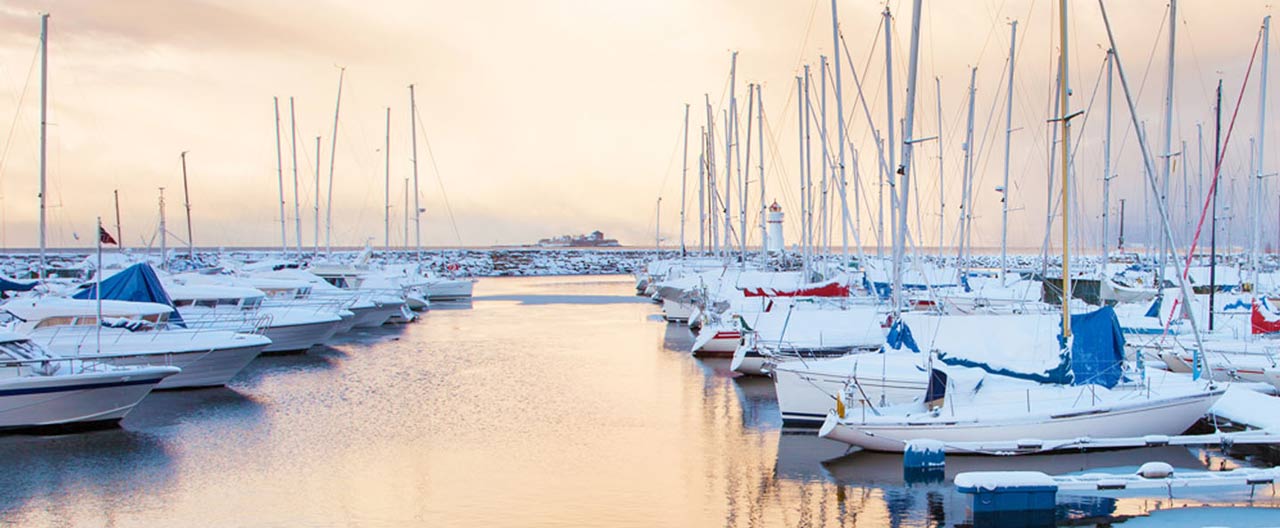When summer is coming to an end, it’s time to prepare your boat for the winter months. If you plan to have your boat hauled out and stored over the winter, here are a few items to remember and tips to help make sure your vessel is prepped correctly, so you’ll be safe and ready for cruising next year.
The basics
Remove what you can. If your boat includes navigation systems or other items that can be easily removed from the vessel, take them off and clean and store them in a reasonably temperate place, away from moisture that can cause mold and mildew. Store navigation systems or other technology at home or in a safe, secure area. If left on the boat, these types of items can be easily stolen and remarketed.
Make a list. Write down the items you remove from your vessel and where they go, so you’ll be sure to replace them correctly in the spring.
Check the dates. Check the expiration dates of all medical, fire-fighting, and signaling items. If they’re close to expiring, make a note to replace them in the off season.
Check dates on your official papers, such insurance and registration. If renewal will be in the off season, make a note of it so that you can do what’s necessary to ensure you can get the vessel operational again without delay next spring.
Hauling your boat out of the water
Know the proper way to haul it out. Make sure the marina or yard that lifts your boat from the water understands the correct way to lift it. They may be more focused on getting as many boats out as possible, so it will be up to you to advocate for your boat’s safety.
If you have a sailboat. If you are taking a sailboat out of the water and are unstepping the mast, make sure all turnbuckles are marked where they are prior to loosening, and that all parts (cotter pins, etc.) are kept where you’ll remember where to find them in the spring.

After your boat is out of the water
Pressure wash hull to remove all marine growth. Follow all regulations around removing invasive species such as zebra mussels.
Check all zincs and make a note of which ones you will need to replace next spring so that you can source them over the winter.
Inspect moving parts. Check all running gear and supports that are not normally visible for damage when the boat is in the water. If you run an outdrive, check the drive and shift cable bellows for cracking and replace the lower unit lube oil.
Keep the drain plug handy. If the boat has a drain plug, remove it but keep it visible so you’ll remember to reinstall it. Consider putting it in a mesh bag and hanging the bag off a stern cleat.
Top off the fuel tanks to 95% and stabilize. This will help prevent condensate water from accumulating in the fuel over the winter and keep the fuel from going bad.
Don’t forget the interior of your boat
Get the water out. If a system is holding water, get it out. If you can’t get it out, put environmentally safe antifreeze in the system — even if you live in an area that does not normally freeze. Consider the Dallas freeze of 2021. Boats there with water in the engines or other systems would have suffered considerable damage.
Inspect all belts, hoses, and thru hull fittings for damage, wear, and signs of age. Is that hydraulic steering line pulling out from its connection? Are those hose clamps oxidized or seized? Now is the time to get them inspected and replaced.
Make sure all valves to thru hull fittings move freely. If they don’t, pull and clean or replace them. It will be easier to do it now than next spring.
Perform machinery maintenance. Follow the manufacturer’s layup guidelines for all machinery including main engines, generators, and watermakers. Maintenance will likely include oil changes, belt checks, battery terminal checks, and more.
Check the bilge. While in the machinery space, make sure that all bilge pump float switches work and the bilges are clean. The easiest way to spot a leak is in a clean bilge.
Remove food and drinks. Take all food and beverages from inside the refrigerator and/or freezer to keep them from freezing in cold temperatures or attracting wildlife.
Turn all batteries to OFF or disconnect them at the terminals.
Storing your boat
Ensure that the boat is blocked properly. Use solid blocks under the keel and stands as appropriate, and make sure the stands are on improved ground that will not compress over the winter.
Cover it. If your boat will be stored outside, either have it professionally shrink-wrapped or cover it to keep it clean and prevent damage from snow and ice accumulation or melted water. Also, be sure that the folks wrapping your boat add the appropriate number and types of vents to the wrapping to help ward off moisture damage.
Insights and expertise
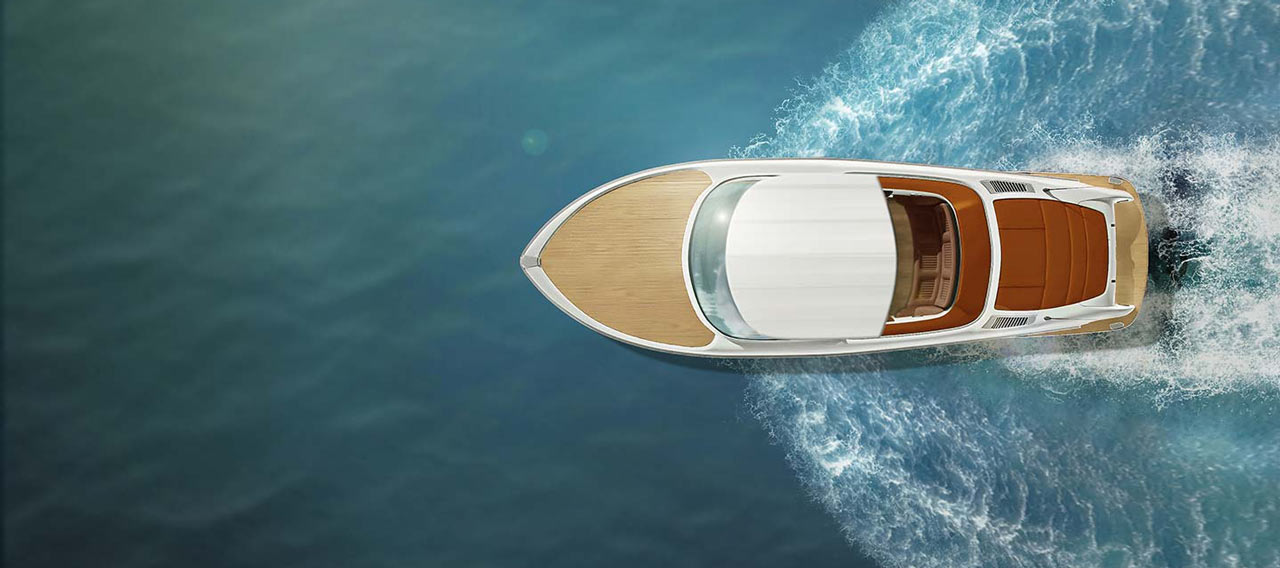
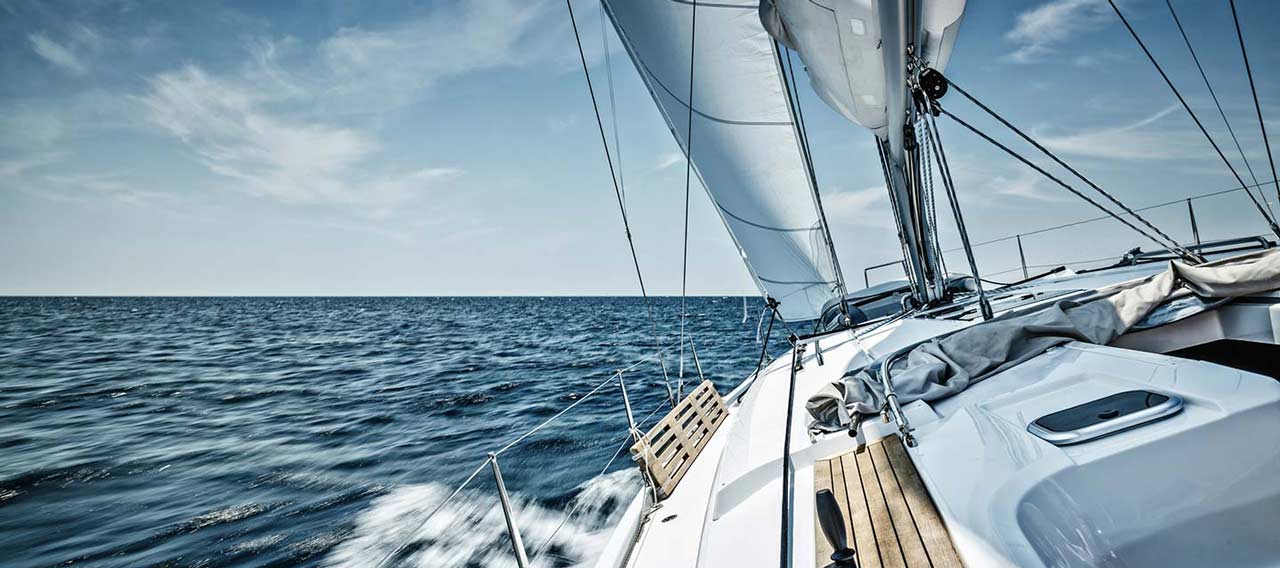
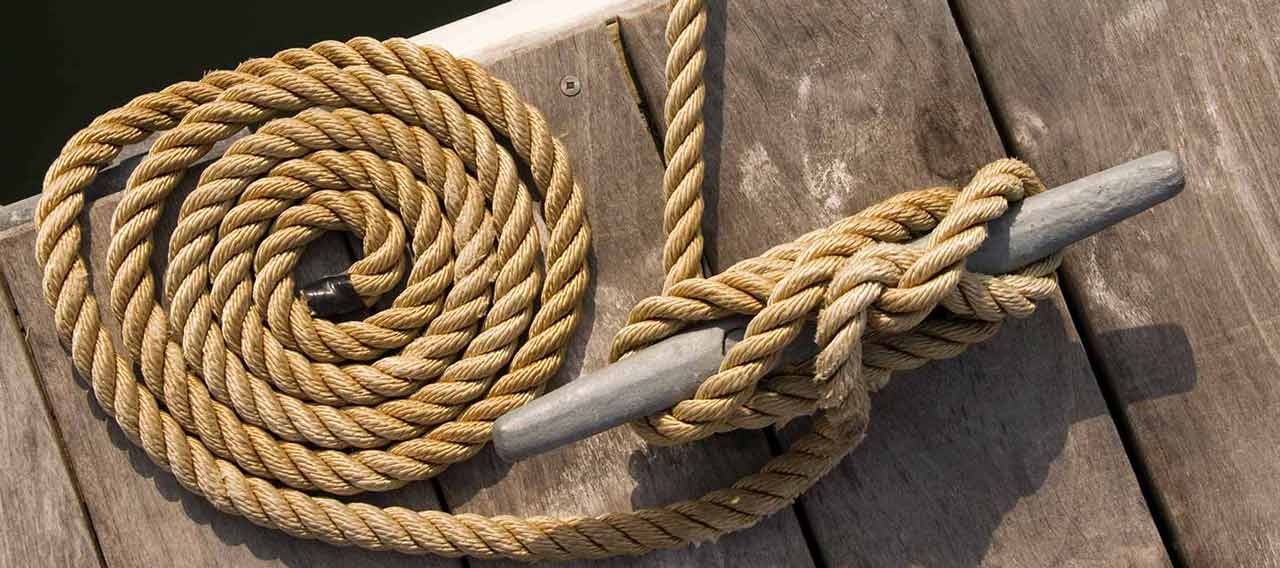
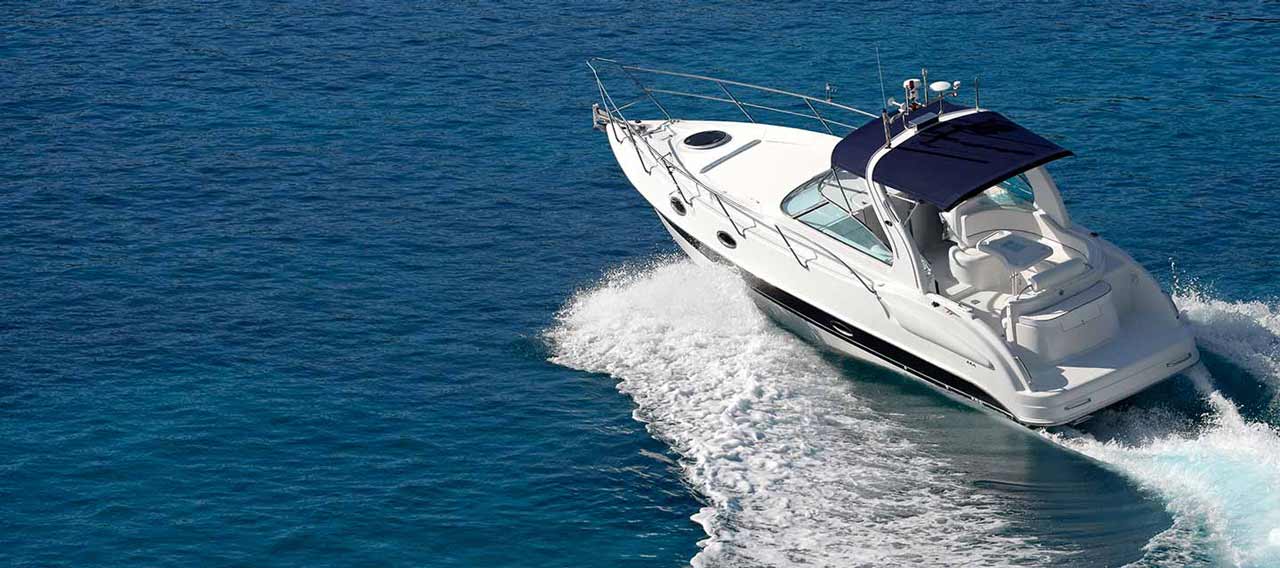

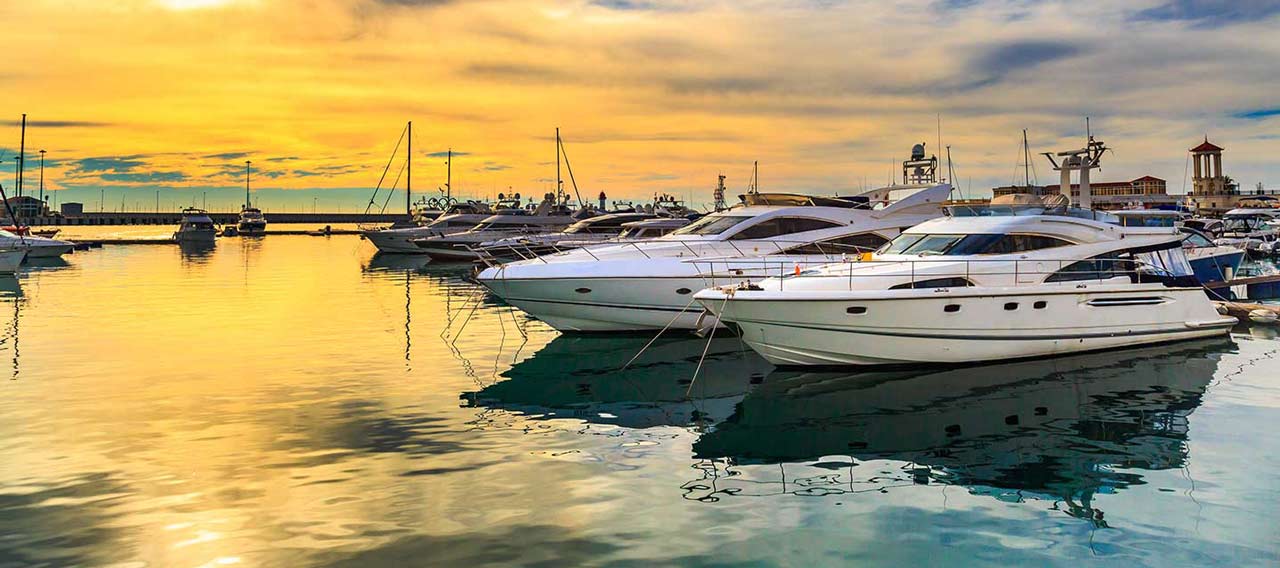
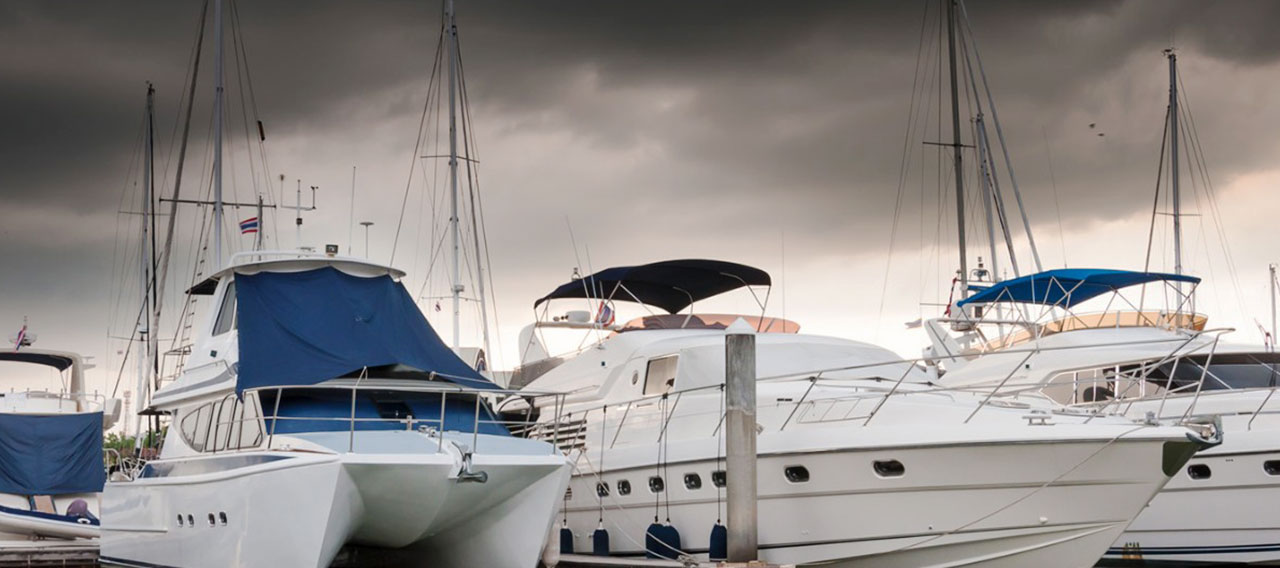

This document is advisory in nature and is offered as a resource to be used together with your professional insurance advisors in maintaining a loss prevention program. It is an overview only, and is not intended as a substitute for consultation with your insurance broker, or for legal, engineering or other professional advice.
Chubb is the marketing name used to refer to subsidiaries of Chubb Limited providing insurance and related services. For a list of these subsidiaries, please visit our website at www.chubb.com. Insurance provided by ACE American Insurance Company and its U.S. based Chubb underwriting company affiliates. All products may not be available in all states. This communication contains product summaries only. Coverage is subject to the language of the policies as actually issued. Surplus lines insurance sold only through licensed surplus lines producers. Chubb, 202 Hall's Mill Road, Whitehouse Station, NJ 08889-1600.










